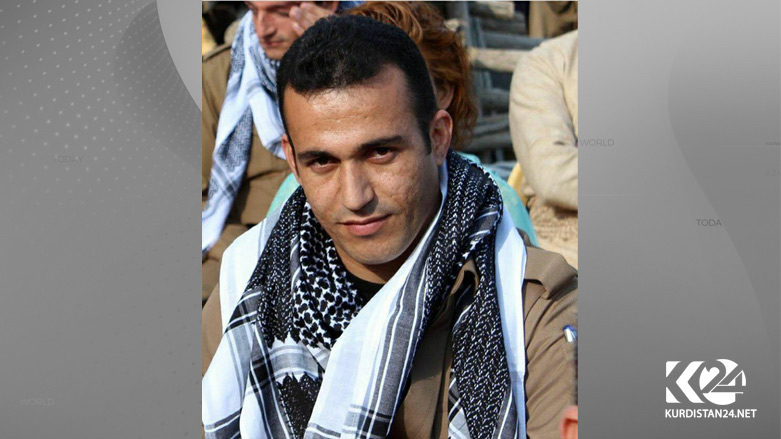Fate, whereabouts of Kurdish activist in Iran unknown for over 80 days

ERBIL, Kurdistan Region (Kurdistan 24) – The fate and whereabouts of a Kurdish man shot and detained in late June remains unknown, said the family.
The family says Ramin Hossein Panahi, arrested on June 23, 2017, is still in the custody of the Iranian intelligence agency, but Iran refuses to reveal the prisoner’s condition and location.
Panahi’s family have urged rights organizations and the public to pressure the Iranian government into providing the political prisoner with medical treatment and a lawyer.
In June, the Islamic Revolutionary Guard Corps (IRGC) of Iran shot dead three members of Komala, a Kurdish opposition group, and took an injured Panahi into custody.
Panahi, who was shot three times, was reportedly transported to a hospital in Sanandaj, the provincial capital of Kurdistan, but was then taken into custody half an hour later before receiving proper treatment.
Two of the detainee’s brothers and several cousins were also arrested in a raid by association shortly after the ambush on Peshmerga in the Kurdish region of Iran, also known as Rojhelat.
The relatives and one of the brothers, Abbas Hossein Panahi, were released last week after meeting their costly bails.
However, his other brother, Afshin Hossein Panahi, is still held captive and was transported to Sanandaj prison, said the family.
The Panahi family has lost several members in the past few years to the Islamic Republic of Iran’s suppression of the Kurdish opposition.
They are currently grieving the loss of one of their sons, Sabah Hossein Panahi, while overwhelmingly anxious about the fate of their missing and injured child, Ramin, and the imprisoned one, Afshin.
Amnesty International called on Iran immediately to reveal the fate and whereabouts of the five Kurdish men who have been subject to forced disappearance.
“Enforced disappearance is a crime under international law and places individuals at serious risk of extrajudicial execution, torture, and other gross human rights violations,” Amnesty International said.
Iran Human Rights Documentation Centre, Association for Human Rights in Kurdistan of Iran-Geneva (KMMK-G), and other rights groups are also urging Iran to release the political prisoner and provide him with medical attention and a lawyer.
Editing by Karzan Sulaivany
